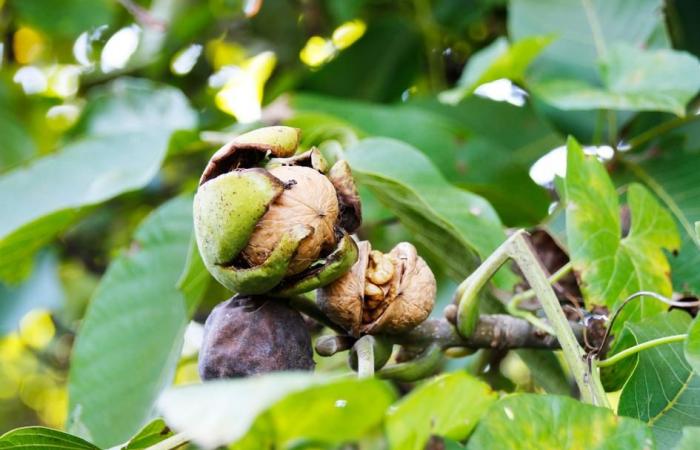
In 2022, the sector faced an unprecedented crisis, caused by a combination of global overproduction and falling prices, reaching their lowest level in 40 years. Consumption of nuts in stores also fell by 30%.
In 2023, unfavorable weather conditions — drought in summer, high humidity in fall — combined with anthracnose, a disease that caused fruit to rot, led to a 50% loss of the harvest.
In 2024, the negative temperatures of April got the better of the flowers at the worst time. The consequences of these few nights of frost resulted in losses ranging from 80 to 100% of the harvest.
Three dark years and a request for adapted support
For the nut growers of the South-West, these are three years of significant losses. Devices fiercely negotiated with parliamentarians, with meetings with the ministry and even the President of the Republic, saw the light of day in 2023. But the millions of euros dedicated to “ save » the sector only concerned a handful of producers in our Region. And for good reason: the criteria for granting aid do not correspond to our production area, which is too diversified.
Aware of the need to structure the sector and the difficulties inherent in the typology of farms, walnut producers from Lot, Corrèze and Dordogne created a regional association at the beginning of 2024. This aims to better defend their interests by creating a collective action framework adapted to the realities on the ground.
A crisis meeting with local elected officials
On Saturday October 19, a meeting of the association was held in Saint-Crépin-et-Carlucet, with the participation of Ms. Meunier, MP for Corrèze, Ms. Varaillas, senator for Dordogne, and Mr. Leyssenne, DDT for Dordogne . The forty producers present highlighted the shortcomings of current aid systems, based on thresholds for loss of turnover and on specialization rates which do not reflect the realities of production in the South-West basin.
An emergency plan to preserve orchards
The association presented an ambitious emergency plan focused on short and medium term measures. As a priority, he emphasizes the urgency of assessing and compensating for crop and financial losses. The measures under study concern TFNB reliefs, total or partial exemption from MSA charges for producers in difficulty or even a cash flow support which would compensate for operating deficits in the medium term, the sector will have to restore the 3,000 hectares of damaged orchards and adapt agricultural practices to new climatic realities. Orchards must be prepared for the future, in particular by increasing productivity per hectare.
A challenge worth 20 million euros
This program, estimated at more than 20 million euros, will mobilize two thirds of the 1,600 walnut producers in the region within a few years. The elected officials and state representatives present were very sensitive to the producers' distress and assured their support for the next steps.





